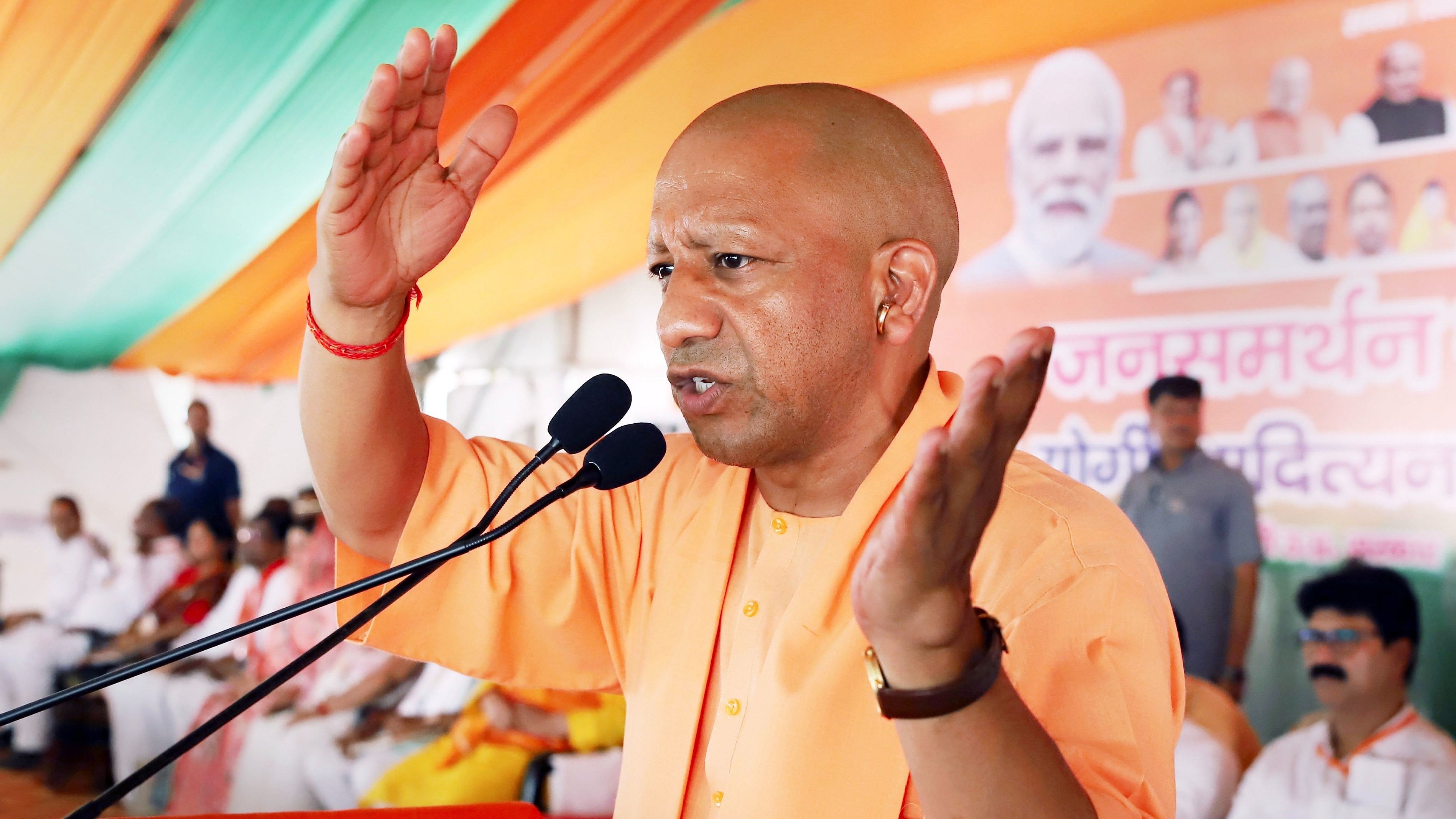
Uttar Pradesh Chief Minister Yogi Adityanath
Credit: PTI Photo
The slogans ‘Batenge toh katenge’ (If you get divided, you will be slaughtered) and ‘Ek rahenge to nek rahenge’ (We stay good as united) by Uttar Pradesh Chief Minister Yogi Adityanath has rippled through India’s political landscape. This blunt rallying cry for Hindu unity has become a central strategy for the Bharatiya Janata Party (BJP) in the Assembly polls for Maharashtra and Jharkhand, and the by-elections in UP.
The objective is to counter the resurgence of caste-based ‘social justice’ politics advocated by the Congress-led I.N.D.I.A. bloc. Prime Minister Narendra Modi also endorsed the slogan, in a softer version, ‘Ek hai to Safe hai’ (We are safe when united), indicating a renewed emphasis on Hindutva-driven cultural cohesion.
As this message gains traction among the Sangh parivar, Adityanath’s rise within the BJP is set to reach a new high. His recent endorsement by RSS general secretary Dattatreya Hosabale and a meeting with RSS chief Mohan Bhagwat in Mathura underscores Adityanath’s potential as a successor to the Hindutva legacy. This strategic gathering took place amid internal challenges in the BJP, especially in UP, and underscored the RSS’ confidence in Adityanath’s ability to consolidate support for a unified Hindu vote base.
More than seven years after becoming UP chief minister, Adityanath has emerged as a prominent face in Hindutva politics, whom the RSS envisions as part of its ideological future.
Adityanath’s governance, with a focus on development, positions him as a central figure in the Hindutva fold. His alignment with the RSS signifies his ability to bridge divides within the BJP’s cultural ecosystem. UP, a political stronghold, has seen Adityanath’s policies blend cultural heritage with governance, echoing the RSS principles and underscoring his potential as a leader in the Hindutva movement.
While Adityanath remains a popular figure within the BJP, his rise has not been without challenges. Factionalism within the party, especially following the BJP’s setbacks in the 2024 Lok Sabha elections, presents ongoing issues. Senior BJP leaders in UP have publicly voiced concerns over his increasing prominence, potentially undermining party unity, particularly as the 2027 Assembly polls approach.
However, the Mathura meeting and the RSS’ endorsement of his ‘Batenge toh katenge’ slogan have sent a message to his detractors, emphasising that ideological unity is crucial for electoral success. This stance discourages divisions along caste or regional lines that could weaken the party’s Hindu vote base.
After the Ram temple, the RSS’ shift could be towards governance policies that reflect cultural heritage. Adityanath’s initiative requiring traditional signage for businesses and a call for cultural respect can be seen as embodying this. It has also inspired similar policies in other states, demonstrating his influence in governance trends.
Comparisons between Adityanath’s governance in UP and Narendra Modi’s Gujarat model highlight shared priorities: both emphasise development while maintaining a strong cultural identity. Adityanath has improved infrastructure, law and order, and economic growth while fostering Hindu cultural unity, reinforcing his status as a national Hindutva leader. His rapport with RSS figures and popularity among BJP supporters make him an asset and a stabilising force amid party challenges. Standing at a pivotal juncture, the BJP needs cohesive leadership, and Adityanath’s ability to unify party workers positions him as a stabilising force.
In a dynamic political landscape, the BJP’s current decisions will have far-reaching consequences. Embracing leaders who can unify and inspire is essential for the party’s success.
The BJP stands at a crossroads where the decisions made today will shape its trajectory for years to come. Prioritising unity, strong leadership, and a clear political vision will be essential in navigating the complex political landscape. Adityanath's potential elevation within the party, supported by the RSS, could provide the impetus needed to reinvigorate the BJP's mission and ensure its continued relevance on the national stage.
(Mahendra Kumar Singh is a political commentator and teaches Political Science at DDU Gorakhpur University, Uttar Pradesh. X: @MKSinghGkp.)
Disclaimer: The views expressed above are the author's own. They do not necessarily reflect the views of DH.